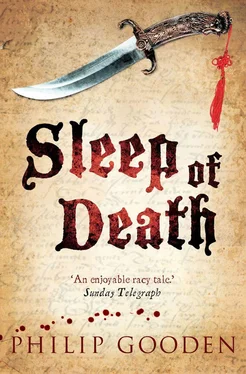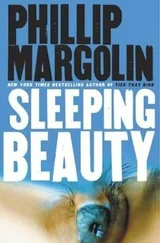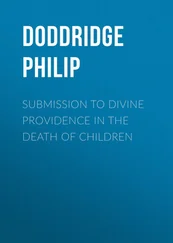Philip Gooden - Sleep of Death
Здесь есть возможность читать онлайн «Philip Gooden - Sleep of Death» весь текст электронной книги совершенно бесплатно (целиком полную версию без сокращений). В некоторых случаях можно слушать аудио, скачать через торрент в формате fb2 и присутствует краткое содержание. Год выпуска: 0101, ISBN: 0101, Издательство: Constable & Robinson, Жанр: Исторический детектив, на английском языке. Описание произведения, (предисловие) а так же отзывы посетителей доступны на портале библиотеки ЛибКат.
- Название:Sleep of Death
- Автор:
- Издательство:Constable & Robinson
- Жанр:
- Год:0101
- ISBN:9781472104311
- Рейтинг книги:5 / 5. Голосов: 1
-
Избранное:Добавить в избранное
- Отзывы:
-
Ваша оценка:
- 100
- 1
- 2
- 3
- 4
- 5
Sleep of Death: краткое содержание, описание и аннотация
Предлагаем к чтению аннотацию, описание, краткое содержание или предисловие (зависит от того, что написал сам автор книги «Sleep of Death»). Если вы не нашли необходимую информацию о книге — напишите в комментариях, мы постараемся отыскать её.
Sleep of Death — читать онлайн бесплатно полную книгу (весь текст) целиком
Ниже представлен текст книги, разбитый по страницам. Система сохранения места последней прочитанной страницы, позволяет с удобством читать онлайн бесплатно книгу «Sleep of Death», без необходимости каждый раз заново искать на чём Вы остановились. Поставьте закладку, и сможете в любой момент перейти на страницу, на которой закончили чтение.
Интервал:
Закладка:
‘And now you are a player. Well, whether the words of Leviticus about the marriages of widows and brothers apply or don’t apply, I’m sure that it is not so unusual for two people in such circumstances to find themselves attracted to each other.’
He said this as if he were talking about my mother and father.
‘Probably not.’
‘So, you see, these events taken separately — a death and a remarriage — are nothing out of the ordinary.’
‘But you don’t actually think that?’
‘To be more precise, I don’t feel it. Without being able to say why, I don’t feel that all’s right with the world.’
‘There’s a simple way of clearing this up,’ I said. ‘When did your father die?’
‘The first week in May.’
‘And the first performance of Hamlet was in June, I think.’
I struggled to remember when I’d seen the tragedy of the Prince of Denmark. It was a successful play and so had received more than a couple of performances; and now it had been revived in the autumn. My first appearance with the Chamberlain’s Men had been on the previous day in this very production. But I was fairly sure that my first sight of it as a spectator had been in early summer. High white clouds scudding above the open playhouse. A sense of freshness in the air, even among the groundlings. Standing at the back I’d pulled my hat lower to shade my gaze from the afternoon sun as I witnessed the destruction of the royal court at Elsinore (little dreaming that I would myself be appearing within a few months on that very stage as the emissary from England, come to announce the deaths of Rosencrantz and Guildenstern to unhearing ears!). Yes, this was in June.
‘It was June,’ I said. ‘I remember.’
‘Well?’
‘Your father’s death took place before the play of Hamlet ever appeared on the Globe stage. You’re not suggesting that our author got the idea for his play from what happened to your father?’
‘Of course not,’ said William Eliot. ‘I’d never accuse any playwright of making up ideas or borrowing from reality. They’d be justifiably insulted. Anyway, every educated person knows that there’s an older version of your author’s Hamlet, some crude stuff that’s been around for years. And that rough version probably had an even rougher version preceding it. And one before that, and so on.’
‘So it’s not a case of nature holding up the mirror to art, as you wittily put it,’ I persisted. ‘Your father’s death occurred before the play was first performed. But it’s not the other way round either. The play was not composed so far in advance of your father’s death as to indicate that the author might have “borrowed” from reality, even assuming that he’d be prepared to do anything so indelicate. The two things, the play writing and the death, must have been occurring more or less simultaneously. Why, he must have been at work on Hamlet in April or even during May itself if it was first staged in June.’
‘He writes fast.’
‘No more than average,’ I said, pretending to a knowledge of our author’s compositional habits. But what I said applied to any playwright worth his salt. We had no patience with any author who laboured for weeks and then produced a few paltry scenes.
‘So there’s no connection between the events of the play and my father’s death, you think,’ said William.
‘Just coincidence,’ I said with a confidence that I didn’t feel.
‘You’re probably right,’ he said. Then after a pause, ‘You remember that I had a proposition to put to you?’
‘Yes.’
He broke off to order another drink for each of us, and, when our hands were full and our mouths refreshed once more, said, ‘You’ve nowhere to lodge presently?’
‘You know already of the difference of opinion with my landlady, apparently.’
‘I can offer you quarters in my house, that is in my mother’s and stepfather’s house. It’s on the other side of river, not so convenient for the Globe perhaps, but in a rather better neighbourhood.’
‘I like it here,’ I said. ‘This is the players’ district.’
And it was true. Southwark was near to being lawless territory, outside the writ of the City authorities. Our one respectable building was the Bishop of Winchester’s Palace. Otherwise we were all stews, playhouses and thieves’ kitchens, together with an array of prisons from the Clink to the Marshalsea — the ultimate destination for many of our folk. Southwark residents tended towards the unrespectable: coney-catchers and bully boys, whores and veterans. . and yet somehow I, the country parson’s son, felt in my element down here in a way that I hadn’t when I lodged north of the river.
‘I didn’t mean permanent quarters,’ said William. ‘I can see that there are advantages to living near your workplace. Though you’re only temporarily with the Chamberlain’s Men, I understand. There’s a man who is off visiting his dying mother, is there not?’
Who had he been talking to?
‘I’m not interested in your offer,’ I said. ‘I prefer to find my own accommodation.’
‘No offence, Master Revill. I have an ulterior motive in asking you to take a room in my house. I’m not in the business of looking after players who have been thrown out of their lodgings for covering their landladies with piss.’
A smile took the offence out of his words. But I was busy wondering if he knew Nell.
‘Master Eliot, get to the point.’
‘I would like you to help me find the murderer of my father.’
I began to think that my new acquaintance shared more than clothing and a fashionable melancholy with that figure who had swept the London stage, the lord Hamlet. Master William Eliot, like the Prince, had a trace of madness in him.
‘I thought there was nothing suspicious in his death.’
‘Outwardly, no.’
‘When you break it down into a series of events there is nothing particularly remarkable about it. Isn’t that what you said — or something like it?’
‘Yes.’
‘Well then?’
‘Master Revill, when you see a play you watch as one scene succeeds another, and you will perhaps not at first understand how the scenes are linked, or that the play with all its disparate parts is nevertheless a whole — sometimes a ragged, clumsy whole — but still something complete unto itself. Whether the play is well-made or ill-made there is connection, there is a plan, a plot.’
‘You should not confuse a play with real life. If there is a plot down here in this world, it is not likely to be discerned by us poor mortals,’ I said, and then realised I was echoing the kind of thing my father would have uttered on Sunday (and the rest of the week).
‘Surely you can see,’ said William, ‘that someone has already created that confusion? My father’s death in some of its details, my mother’s remarriage to my uncle and so on — all of this has been revealed on the stage not a few hundred yards from where we are sitting. You say coincidence, but I say coincidence is simply a word for what we don’t yet understand. And if there is a plot behind Master Shakespeare’s work, which there is certainly is, then why should there not be a plot behind what has happened to the Eliot family?’
I made no answer. There was some flaw in his argument but I was unable to identify it.
‘So what am I supposed to do?’
‘Accept my offer of lodgings. You would be received into the house as a friend who has done the Eliot family a favour and who is in need of accommodation for the time being. I can speak for my mother and I believe I can speak for my uncle in this respect. You will of course need to cross the river daily for your work at the Globe. But while you are in my mother’s house, watch and listen.’
Читать дальшеИнтервал:
Закладка:
Похожие книги на «Sleep of Death»
Представляем Вашему вниманию похожие книги на «Sleep of Death» списком для выбора. Мы отобрали схожую по названию и смыслу литературу в надежде предоставить читателям больше вариантов отыскать новые, интересные, ещё непрочитанные произведения.
Обсуждение, отзывы о книге «Sleep of Death» и просто собственные мнения читателей. Оставьте ваши комментарии, напишите, что Вы думаете о произведении, его смысле или главных героях. Укажите что конкретно понравилось, а что нет, и почему Вы так считаете.












